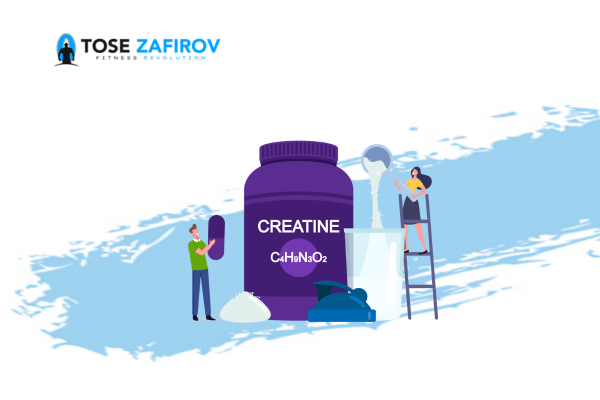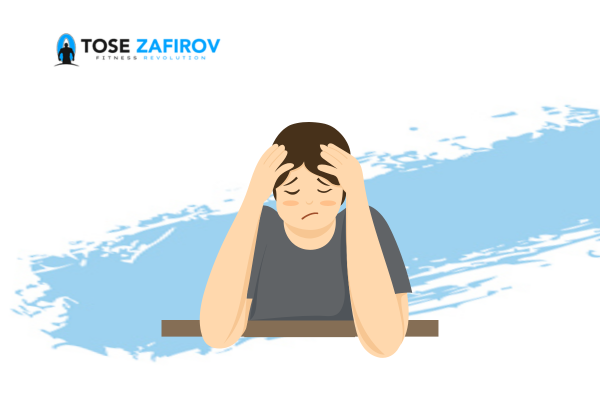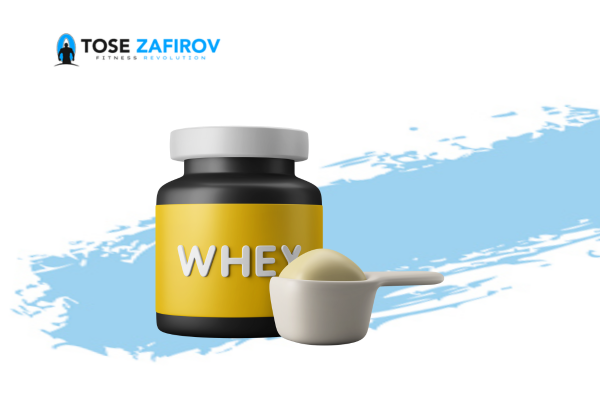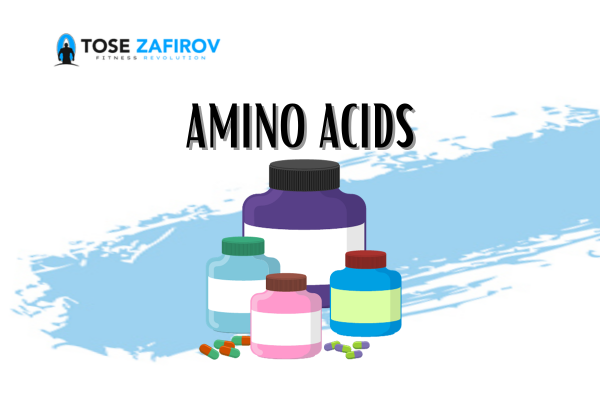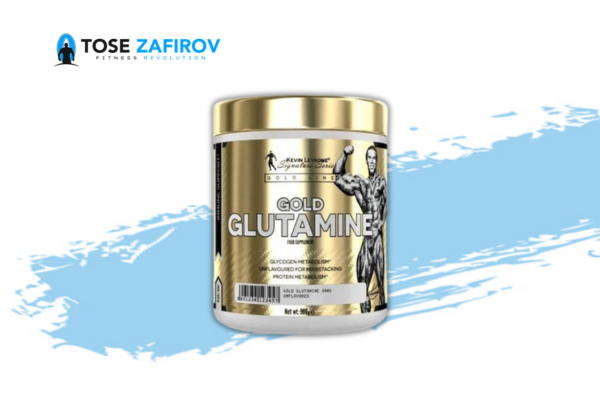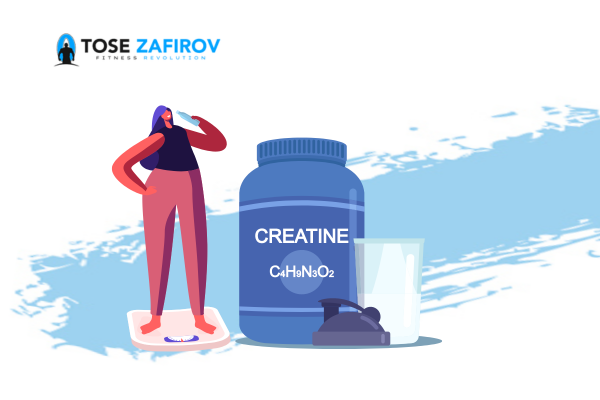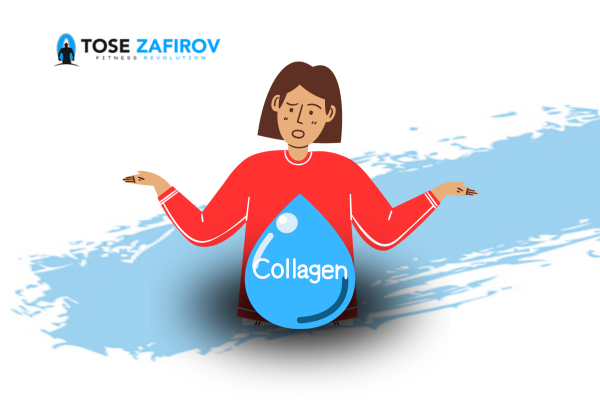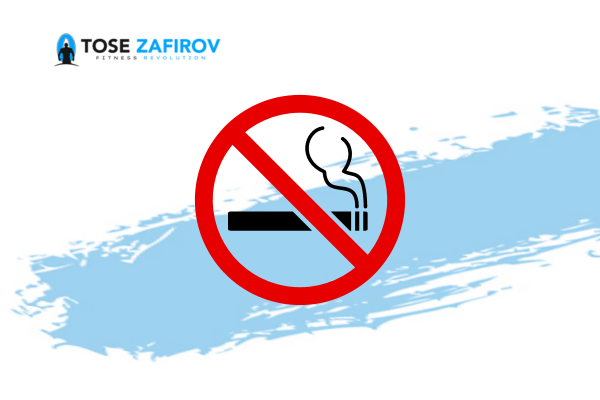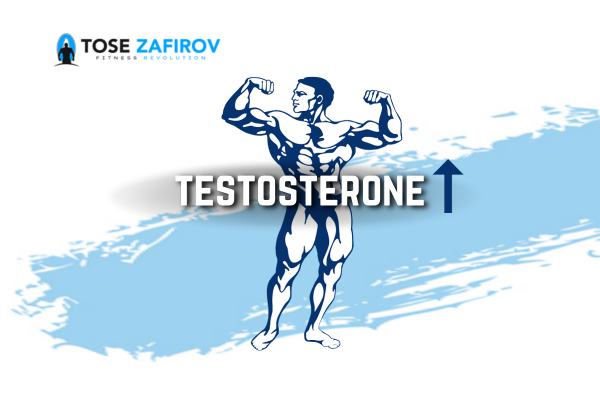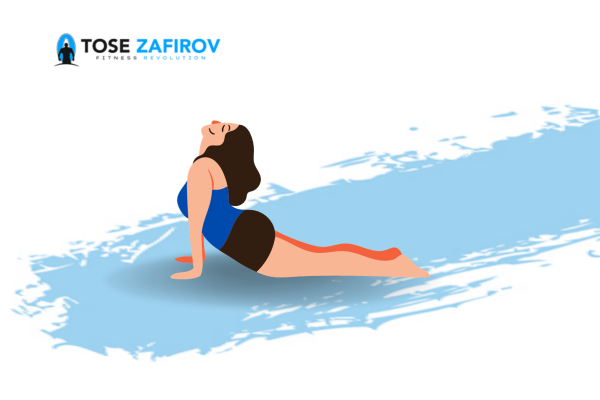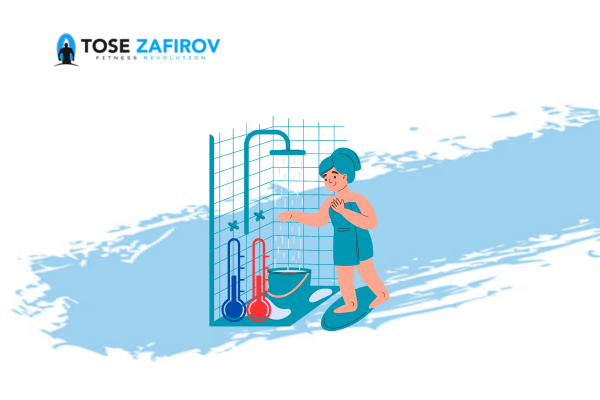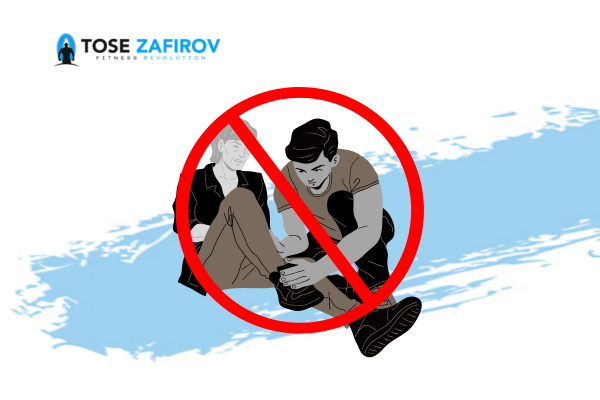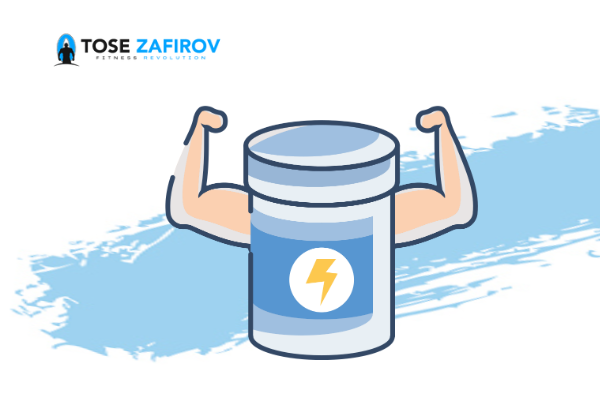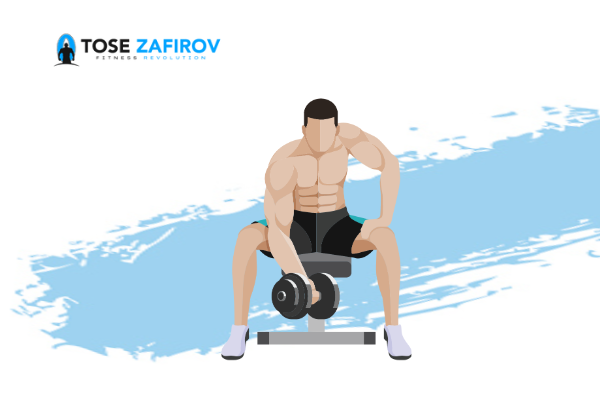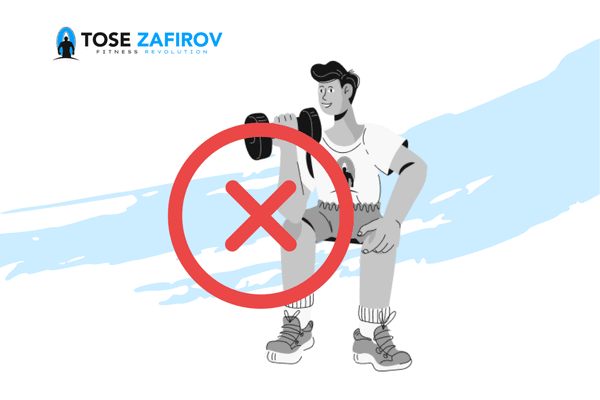Creatine is a compound that comes from three amino acids. Creatine is found mostly in your body’s muscles as well as in the brain. Most people get creatine through seafood and red meat — though at levels far below those found in synthetically made creatine supplements. The body’s liver, pancreas and kidneys also can make about 1 gram of creatine per day.
Your body stores creatine as phosphocreatine primarily in your muscles, where it’s used for energy. As a result, people take creatine orally to improve athletic performance and increase muscle mass.
Key Takeaways:
- Creatine, a widely researched sports supplement, is proven safe and effective despite myths about kidney and liver damage, dehydration, and weight gain.
- Scientific evidence supports daily creatine supplementation, showing no significant adverse effects over extended periods.
- Creatine enhances exercise performance by increasing muscle energy during high-intensity workouts.
What is creatine? Is it bad for you?
Creatine is the top sports performance supplement available. Yet despite its research-backed benefits, some people avoid creatine because they worry it’s bad for their health.
Some claim it causes weight gain, cramping, and issues with digestion, the liver, or the kidneys. But hundreds of studies support its safety and effectiveness.
This article provides an evidence-based review of creatine’s safety and side effects.
Purported side effects of creatine
Depending on who you ask, the suggested side effects of creatine may include:
- kidney damage
- liver damage
- kidney stones
- weight gain
- bloating
- dehydration
- muscle cramps
- digestive concerns
- compartment syndrome
- Rhabdomyolysis
Is creatine a steroid?
Some people wrongly claim that creatine is an anabolic steroid, that it’s unsuitable for women or teenagers, or that it should be used only by professional athletes or bodybuilders .
Despite this negative press, the International Society of Sports Nutrition regards creatine as extremely safe, concluding that it is one of the most beneficial sports supplements available .
One study examined 69 health markers after participants took creatine supplements for 21 months. It found no adverse effects .
Creatine has also been used to treat various diseases and health concerns, including neuromuscular disorders, concussions, diabetes, and muscle loss.
Is creatine safe to take every day?
Research has shown that it is safe to consume creatine supplements daily, even over several years.
There is no evidence to support any significantly detrimental side effects in people who consume high doses of creatine (30 grams/day) for up to 5 years .
In fact, research has shown positive health benefits in athletes who took daily supplements of creatine for long periods of time .
Note
How does creatine work biologically?
Creatine is found throughout your body, with 95% of it stored in your muscles .
It is obtained from meat and fish and can also be produced naturally in your body from amino acids .
Your diet and natural creatine levels do not typically maximize muscle stores of this compound.
The average stores are about 120 mmol/kg for someone who weighs 154 pounds (70 kg), but creatine supplements can elevate these stores to around 160 mmol/kg .
During high intensity exercise, the stored creatine helps your muscles produce more energy. This is the main reason that creatine enhances exercise performance .
Once you fill your muscle’s creatine stores, any extra is broken down into creatinine, which is metabolized by your liver and released in your urine.
Note
Around 95% of the creatine in your body is stored in your muscles. There, it provides increased energy for high intensity exercise.
Does it cause dehydration or cramps?
Creatine alters your body’s stored water content, driving additional water into your muscle cells.
This fact may be behind the theory that creatine causes dehydration. However, this shift in cellular water content is minor, and no research supports the claims about dehydration.
A 3-year study of college athletes found that those taking creatine had fewer cases of dehydration, muscle cramps, or muscle injuries than those not taking it. They also missed fewer sessions due to illness or injury .
One study examined creatine use during exercise in hot weather, which can accelerate cramping and dehydration. During a 35-minute cycling session at 99°F (37°C), creatine had no adverse effects on cyclists, compared with a placebo .
Further examination via blood tests also confirmed no difference in hydration or electrolyte levels, which play a key role in muscle cramps .
The most conclusive research has been conducted in individuals undergoing hemodialysis, a medical treatment that may cause muscle cramps. Researchers noted that the group taking creatine experienced a 60% reduction in cramping .
Based on the current evidence, creatine does not cause dehydration or cramping. If anything, it may protect against these conditions.
Pro Tip
Contrary to popular belief, creatine does not increase your risk of cramps and dehydration. In fact, may reduce your risk of these conditions.
Does creatine cause weight gain?
Research has thoroughly documented that creatine supplements cause a quick increase in body weight.
In a study, 1 week of high dose loading of creatine supplementation (20 grams/day) increased participants’ body weight by around 2–6 pounds (1–3 kg) .
Over the long term, studies show that body weight may continue to increase to a greater extent in creatine users than in people who do not take creatine. This weight gain is due to increased muscle growth — not increased body fat.
Increased muscle may also have benefits for older adults, individuals with obesity, and those with certain diseases .
Pro Tip
Weight gain from creatine is not due to gaining fat but increased water content in your muscles.
How does it affect your kidneys and liver?
Creatine can slightly raise levels of creatinine in your blood. Creatinine is commonly measured to diagnose kidney or liver conditions.
However, the fact that creatine raises creatinine levels does not mean that it is harming your liver or kidneys .
To date, no study of creatine use in healthy individuals has provided evidence of harm to these organs .
A long-term study of college athletes found no side effects related to liver or kidney function. Other studies measuring biological markers in the urine found no difference after creatine ingestion .
One of the longest studies to date — lasting for 4 years — similarly concluded that creatine has no negative side effects .
Another popular study often cited in the media reported kidney disease in a male weightlifter who supplemented with creatine .
But this single case study is insufficient evidence. Numerous other factors, including additional supplements, were also involved .
That said, use caution when it comes to taking creatine supplements if you have a history of liver or kidney concerns. A healthcare professional can help you decide whether taking creatine is right for you.
Note
Current research suggests that creatine does not cause liver or kidney issues.
Does it cause digestive concerns?
As with many supplements or medications, excessive doses may cause digestive issues.
In a 2008 study, a 5-gram dose (taken twice per day) caused diarrhea in 29% of participants, which was not significantly different than the placebo. However, a 10-gram dose (taken once per day) increased diarrhea risk by 56% .
For this reason, the recommended serving is set at 3–5 grams. The 20-gram loading protocol is also split into 4 servings of 5 grams each over a day .
Despite anecdotal reports, there is no evidence that creatine causes digestive concerns when taken at recommended doses .
It is possible that additives, ingredients, or contaminants generated during the industrial production of creatine can lead to issues .
It is recommended that you purchase a trusted, high quality product.
Note
Creatine does not increase digestive issues when the recommended dosages and loading guidelines are followed.
Possible Interactions
If you are being treated with any of the following medications, you should not use creatine without talking to your doctor first.
- Non steroidal anti-inflammatory drugs (NSAIDs)
Taking creatine with these pain relievers may increase the risk of kidney damage. NSAIDs include ibuprofen (Motrin, Advil) and naproxen (Aleve).
- Caffeine
Caffeine may make it hard for your body to use creatine, and taking creatine and caffeine may increase the risk of dehydration. Using creatine, caffeine, and ephedra (now banned in the U.S.) may increase the risk of stroke.
- Diuretics (water pills)
Taking creatine with diuretics may increase the risk of dehydration and kidney damage.
- Cimetidine (Tagamet)
Taking creatine while taking Tagamet may increase the risk of kidney damage.
- Drugs that affect the kidneys
Using creatine along with any medication that affects the kidneys may raise the risk of kidney damage.
- Probenecid
Taking creatine while taking probenecid, a drug used to treat gout, may increase the risk of kidney damage.
Does creatine give you acne?
There is no evidence that creatine causes acne. Creatine may enhance your ability to exercise harder and longer, leading to increased sweat. While sweating can lead to acne, creatine itself does not.
Some research has demonstrated that creatine may help your skin by improving skin wrinkles, aging, and damage when used topically.
Note
There is no current research to suggest creatine directly causes acne. In fact, some studies show that it can help with wrinkles, aging, and skin damage.
Other potential side effects
Some people suggest that creatine can lead to compartment syndrome, a condition that occurs when excessive pressure builds inside an enclosed space — usually within arm or leg muscles.
Although one study found increased muscle pressure during 2 hours of heat training, this resulted mainly from heat and exercise-induced dehydration — not from creatine .
Researchers also concluded the pressure was short-lived and insignificant.
Some claim that creatine supplements increase your risk of rhabdomyolysis, a condition in which muscle breaks down and leaks proteins into your bloodstream. However, this idea is not supported by any evidence.
The myth originated because a marker in your blood called creatine kinase increases with creatine supplements.
This slight increase is quite different from the large amounts of creatine kinase associated with rhabdomyolysis. Interestingly, some experts even suggest creatine may protect against this condition .
Some people also confuse creatine with anabolic steroids, but this is yet another myth. Creatine is a completely natural and legal substance found in your body and in foods — such as meat — with no link to steroids .
Finally, there is a misconception that creatine is suitable only for male athletes. Yet no research suggests that it is unsuitable in recommended doses for women or older adults.
Unlike most supplements, creatine has been given to children as a medical intervention for certain conditions, such as neuromuscular disorders or muscle loss.
Studies lasting as long as 3 years have found no negative effects of creatine in children .
Note
Research has consistently confirmed creatine’s excellent safety profile. There is no evidence that it causes adverse conditions like rhabdomyolysis or compartment syndrome.
The bottom line
Creatine is a safe and beneficial sports supplement with proven advantages for exercise performance. Dispel misconceptions about its side effects, as scientific research consistently supports its safety and positive impact on muscle health.


